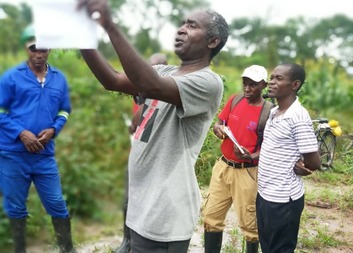Full Name: Enhancing Education (Lusaka) and self-reliance of Refugees and their Host Communities in Lusaka and Mantapala, Meheba and Mayukwayukwa Settlements
Duration: January-October 2020
As at the end of 31st July 2019, Zambia hosts 82,626 refugees and other persons of concern (POCs), predominantly from the Democratic Republic of Congo, as well as from Angola, Burundi, Rwanda and Somalia. Zambia currently practices the encampment policy for hosting refugees. This means that depending on their area of arrival and possible pre-existing family links in the country of asylum, individuals newly recognised are refugees are transferred to one of the three existing settlements: Mayukwayukwa in Western Province, Meheba in North Western province, and Mantapala in Luapula Province. .
Implementation and Results:
Thanks to UNHCR funding, CCR has promoted both refugees and local Zambians, especially single women living in poor districts of Lusaka and three refugee settlements. In the refugee settlements, CCR provided trainings in various topics, such as beekeeping and honey production, crop and livestock production, rice value chain, fish value chain or conservation agriculture. In Lusaka, the programme was implementing education related activities, for example maintaining the outreach centres or financially supporting children-students.
All this has had a direct impact on the ability to the participants to make a sustainable living, improving both their social and economic situations.
Donors:
UNHCR





